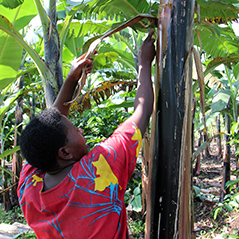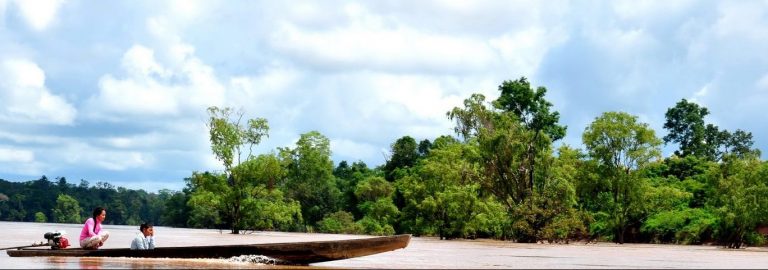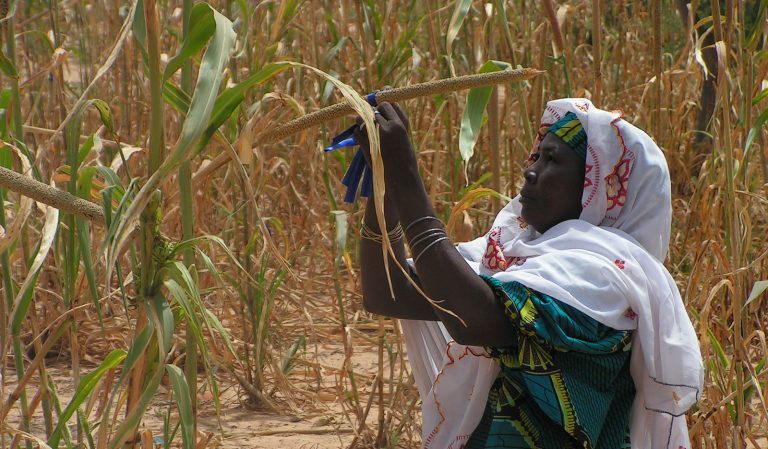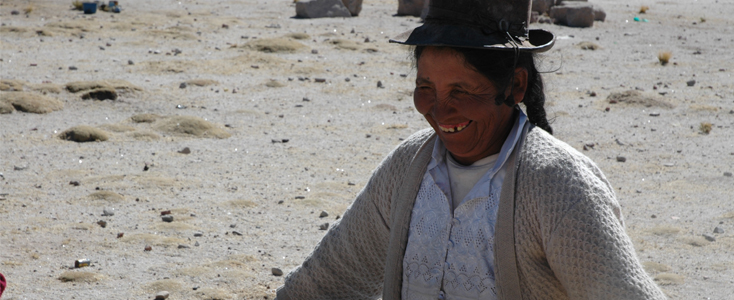Bioversity International is a global research-for-development organization with a vision of nourishing people and sustaining the planet through agricultural biodiversity. They partner with organizations in low-income countries in regions where agricultural and tree biodiversity can contribute to improved nutrition, resilience, productivity, and climate change adaptation.
As a result of more effective disease control practices, the average farm yield has increased, allowing farmers to sell more bananas in the market and gain financial stability for their families and communities.
Livelihoods in East and Central Africa are seriously threatened by Banana Xanthomonas Wilt, a devastating disease causing up to 100% yield loss and severely damaging the livelihoods and food security of banana farming households across the region. In Uganda, Bioversity International has strengthened the capacity of hundreds of farmers to better manage the disease. Simple practices such as destroying the infected plants, removing the male buds, and disinfecting farm tools are very effective measures against Banana Xanthomonas Wilt. Bioversity gave farmers the opportunity to learn these practices and other disease-management options through regional meetings, farmer exchange visits, and farmer field schools.
 While these practices were effective in controlling the disease on-station, they were not immediately adopted by farmers. Bioversity International and its partners modified their approach, developing a new strategy called “Learning and Experimentation Approaches for Farmers.” Under this method, technologies and practices generated by research are tested and validated by farmers and other relevant stakeholders along the value chain. This gives farmers ownership of what they have learned, making them more likely to adopt the new practices. At the same, the tool prompts Bioversity and its partners to respond to the most relevant needs of farmers.
While these practices were effective in controlling the disease on-station, they were not immediately adopted by farmers. Bioversity International and its partners modified their approach, developing a new strategy called “Learning and Experimentation Approaches for Farmers.” Under this method, technologies and practices generated by research are tested and validated by farmers and other relevant stakeholders along the value chain. This gives farmers ownership of what they have learned, making them more likely to adopt the new practices. At the same, the tool prompts Bioversity and its partners to respond to the most relevant needs of farmers.
As a result of more effective disease control practices, the average farm yield has increased from 5-10 bunches per acre per week to 15-20 bunches, allowing farmers to sell more bananas in the market and gain financial stability for their families and communities. Building on the experience and tools developed during the project, Bioversity International is developing a second phase to scale up the adoption of effective disease-management practices.


